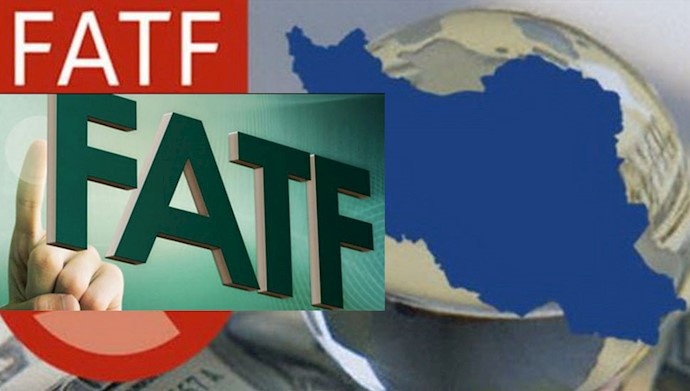Analysis by PMOI/MEK
Oct. 24, 2018 – On October 19, the international group that monitors money-laundering worldwide extended its suspension of counter-measures against the Iranian regime until February in order to give the country more time to complete reforms that would bring it into line with global norms.
The mullahs’ regime attempted tried to paint the Financial Action Task Force’s decision as a victory in the face of the “Global Satan”, a term Iran usually uses for the United States. However, the FATF’s warning neutralized the mullahs’ game plan.
Referring to what he called the regime’s compliance with most of FATF’s requests, Iranian Foreign Ministry spokesperson Bahram Qasemi said: “It was expected that the FATF summit would consider these realities and avoid using some negative terms in its statement.”
Keyhan daily, known as the mouthpiece of Iranian regime Supreme Leader Ali Khamenei, also wrote: “After news [broke] about the [extension] of the suspension, media sources that paint a beautiful picture of FATF cheered the decision and considered it a defeat for the U.S. and the Zionist regime. And that’s despite [the fact] that after executing 90 percent of FATF’s requests, our country is still in the black list.”
Media outlets close to Rouhani’s government applauded the decision as a victory. But the reality of FATF’s decision revealed itself swiftly through remarks by Iranian authorities.
The state-run ISNA news agency reported on October 20 that Marshall Billingslea, FATF President and US Assistant Secretary for the Terrorist Financing in the Department of Treasury, has requested the Iranian regime to fully comply with its obligations until February 2019.
Contrary to Iranian media reports that the country has complied with most FATF request, the outcome report for the FATF Plenary, 17-19 October 2018, writes: “… the FATF expresses its disappointment that the majority of the Action Plan remains outstanding [emphasis added] and expects Iran to proceed swiftly in the reform path to ensure that it addresses all of the remaining items by completing and implementing the necessary AML/CFT reforms.”
AML/CFT refers to Anti Money Laundering and Counter-Financing of Terrorism measures. Each country or currency zone has its own anti money laundering laws that conform to FATF guidelines.
“By February 2019, the FATF expects Iran to have brought into force the necessary legislation in line with FATF standards, or the FATF will take further steps to protect against the risks emanating from deficiencies in Iran’s AML/CFT regime. The FATF also expects Iran to continue to progress with enabling regulations and other amendments,” the report adds.
Warning about doing business with Iran, FATF’s report concludes, “Iran will remain on the FATF Public Statement until the full Action Plan has been completed. Until Iran implements the measures required to address the deficiencies identified in the Action Plan, the FATF will remain concerned with the terrorist financing risk emanating from Iran and the threat this poses to the international financial system. The FATF, therefore, calls on its members and urges all jurisdictions to continue to advise their financial institutions to apply enhanced due diligence, including obtaining information on the reasons for intended transactions, to business relationships and transactions with natural and legal persons from Iran, consistent with FATF Recommendation 19.”
Keyhan writes about FATF’s decision:
“There is no reason for celebrating FATF’s ultimatum.”
“The Guardian Council shouldn’t be deceived,” the piece adds, referring to the body that has to pass the parliament-approved bills into law.
But MPs close to Rouhani’s so-called “moderate” faction show a different perspective about the FATF and the roots of the challenges the Iranian regime faces.
Jafarzadeh Imenabadi warns both factions about considering the FATF a breakthrough and calls such thinking a “strategic mistake”.
“Our country’s economy is like a creature that is kept behind the doors of some obstacles, with the FATF being the most important one. Although accepting FATF conditions means these doors will open, but that doesn’t equal our passing those doors,” he adds.
“Unless we prepare our internal situation for attracting investments, even a thousand FATFs won’t do us any good.”





